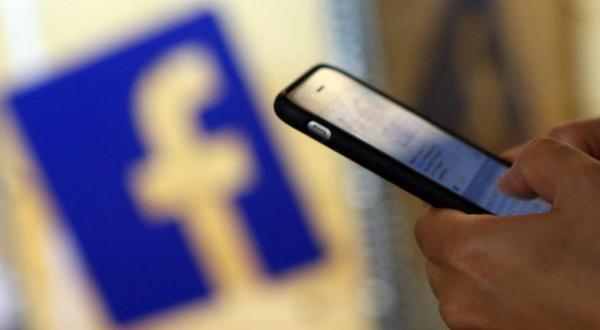When we use the internet, we generate a large amount of data that can potentially be manipulated for different objectives. Often this data can be a highly profitable commodity.
The Cambridge Analytica case appears to show how the data footprints we leave in our daily internet usage can be used for political purposes, such as attempting to influence elections.
WHAT IS CAMBRIDGE ANALYTICA?
Cambridge Analytica is a privately owned data analysis firm based in London, with offices in the US and Brazil. It is a service provider that offers consultancy based on digital data for commercial or political purposes. The company describes itself as a "data-driven communications and marketing agency" on its website.
The firm first came under scrutiny when a whistle-blower who helped set up the company told The Guardian newspaper about its tactics: It is accused of illegally obtaining information from up to 50 million Facebook users after misleadingly gaining access under the guise on an app.
Cambridge University academic Aleksandr Kogan created the "thisisyourdigitallife" app. Cambridge Analytica is said to have collaborated on the app. The data theft is said to have occurred because the app duped users, who were given the impression they were taking a personality test by answering a quiz. Instead, the data was used in pro-Trump campaigning for the 2016 US election.
WHAT DOES FACEBOOK HAVE TO DO WITH IT?
Facebook has not broken the law by allowing third parties, such as the app, access to data collected on its site. When users agree to the terms of Facebook and its third party apps, users agree and their information can be passed on lawfully.
But Facebook has a platform policy for third parties (apps) which states "Don't confuse, deceive, defraud, mislead, spam or surprise anyone,".
Facebook also states that third party apps that use the Facebook platform must "provide a publicly available and easily accessible privacy policy that explains what data you are collecting and how you will use that data."
In this sense, any app that collects information - for example, via answers to a quiz - but uses the information collected (the quiz answers) for other purposes, or even sells it, is acting illegally and in breach of Facebook policy.
The social media giant claims it was "deceived" in the Cambridge Analytica data scandal and has pledged to protect people's information.
WHAT ARE BIG DATA, PROFILING AND MICROTARGETING?
Big data is a large amount of information that can be analysed to reveal patterns, trends or associations. Sometimes it can only be extracted by sophisticated modes of analysis.
It can reveal detailed information about millions of people if it falls into a data analyst's hands.
Profiling means collecting data to construct analytical profiles of individuals or groups. Whenever an individual uses their smartphone or web browser, a constant stream of data can be passed on to third parties.
This tracked usage includes purely technical information - such as the IP address of the computers used, location data and the type of device used - but also personal data.
With the help of Facebook likes, third parties can conclude, with high reliability, characteristics such as age, sexual orientation, ethnicity, political attitude, relationship status or alcohol consumption. Often this information is publicly available, depending on the individual's privacy settings.
For example, if a person uses Paypal or other electronic payment systems to purchase beer (private data) or makes a post on social media about buying beer for a party (public data), Facebook has the right to collect either of these pieces of information and sell it to marketers of beer.
The beer buyer can then be a micro-target for beer producers because they are more likely to sell more to a known consumer rather than to a non-drinker.
WHAT IS BEING DONE TO STOP IT?
Governments and national agencies have expressed concerns about allegations that data harvested from individuals' private social media accounts has been used to influence elections.
Regulations on data usage, security and laws governing digital business and behaviour vary from country to country. For example, data security laws are much stricter in the European Union than in the US, sometimes influencing decisions on where companies such as Cambridge Analytica base themselves.
Because of its global nature, the internet is difficult for authorities to police according to a particular country's mandate.
------------------------------------------------------------------------------------------------------------------
The Cambridge Analytica case appears to show how the data footprints we leave in our daily internet usage can be used for political purposes, such as attempting to influence elections.
WHAT IS CAMBRIDGE ANALYTICA?
Cambridge Analytica is a privately owned data analysis firm based in London, with offices in the US and Brazil. It is a service provider that offers consultancy based on digital data for commercial or political purposes. The company describes itself as a "data-driven communications and marketing agency" on its website.
The firm first came under scrutiny when a whistle-blower who helped set up the company told The Guardian newspaper about its tactics: It is accused of illegally obtaining information from up to 50 million Facebook users after misleadingly gaining access under the guise on an app.
Cambridge University academic Aleksandr Kogan created the "thisisyourdigitallife" app. Cambridge Analytica is said to have collaborated on the app. The data theft is said to have occurred because the app duped users, who were given the impression they were taking a personality test by answering a quiz. Instead, the data was used in pro-Trump campaigning for the 2016 US election.
WHAT DOES FACEBOOK HAVE TO DO WITH IT?
Facebook has not broken the law by allowing third parties, such as the app, access to data collected on its site. When users agree to the terms of Facebook and its third party apps, users agree and their information can be passed on lawfully.
But Facebook has a platform policy for third parties (apps) which states "Don't confuse, deceive, defraud, mislead, spam or surprise anyone,".
Facebook also states that third party apps that use the Facebook platform must "provide a publicly available and easily accessible privacy policy that explains what data you are collecting and how you will use that data."
In this sense, any app that collects information - for example, via answers to a quiz - but uses the information collected (the quiz answers) for other purposes, or even sells it, is acting illegally and in breach of Facebook policy.
The social media giant claims it was "deceived" in the Cambridge Analytica data scandal and has pledged to protect people's information.
WHAT ARE BIG DATA, PROFILING AND MICROTARGETING?
Big data is a large amount of information that can be analysed to reveal patterns, trends or associations. Sometimes it can only be extracted by sophisticated modes of analysis.
It can reveal detailed information about millions of people if it falls into a data analyst's hands.
Profiling means collecting data to construct analytical profiles of individuals or groups. Whenever an individual uses their smartphone or web browser, a constant stream of data can be passed on to third parties.
This tracked usage includes purely technical information - such as the IP address of the computers used, location data and the type of device used - but also personal data.
With the help of Facebook likes, third parties can conclude, with high reliability, characteristics such as age, sexual orientation, ethnicity, political attitude, relationship status or alcohol consumption. Often this information is publicly available, depending on the individual's privacy settings.
For example, if a person uses Paypal or other electronic payment systems to purchase beer (private data) or makes a post on social media about buying beer for a party (public data), Facebook has the right to collect either of these pieces of information and sell it to marketers of beer.
The beer buyer can then be a micro-target for beer producers because they are more likely to sell more to a known consumer rather than to a non-drinker.
WHAT IS BEING DONE TO STOP IT?
Governments and national agencies have expressed concerns about allegations that data harvested from individuals' private social media accounts has been used to influence elections.
Regulations on data usage, security and laws governing digital business and behaviour vary from country to country. For example, data security laws are much stricter in the European Union than in the US, sometimes influencing decisions on where companies such as Cambridge Analytica base themselves.
Because of its global nature, the internet is difficult for authorities to police according to a particular country's mandate.
------------------------------------------------------------------------------------------------------------------









 Home
Home Politics
Politics











